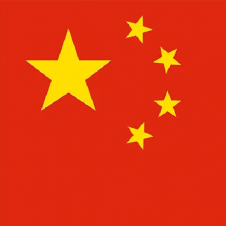China is seeking an increased role in the country’s tech sector by acquiring special management shares, colloquially known as 'golden shares', in two of the country's biggest tech companies, reports The Financial Times.
These stakes, which usually involve a one percent share in the company, allow the country’s communist party to have a hand in the businesses, with China’s media regulation advising state groups taking such shares to demand a board seat and the right to moderate content.
The CAC (Cyberspace Administration of China) acquired a one percent stake in Alibaba subsidiary Guangzhou Lujiao Information Technology (GLIT) on January 4, according to business records, with sources familiar with the matter stating that this would allow the group to tighten control over Alibaba’s streaming service Youku and browser UCWeb. As part of the deal, GLIT appointed a new board member, Zhou Mo. This is the name of a mid-level official at the CAC.
The specifics of the government’s plans to acquire golden shares in Tencent are unclear, but a source close to the matter stated that the company is pushing for any government stakeholder to originate from its home base if Shenzhen, as opposed to the Beijing-based fund which took stakes in Alibaba, as well as other units owned by ByteDance and Weibo.
What does this mean for these businesses?
The Chinese government acquired a stake in key ByteDance unit Beijing ByteDance Technology through an entity named WangTouZhongwen (Beijing) Technology, and through this stake was able to nominate communist party official Wu Shugang to the board of directors. Shugang first gained attention a decade go for his outspoken views regarding so-called “Chinese traitors.”
In his role, Wu has input over various aspects of the company, such as business strategy and investment plans, and while he can be outvoted by the other directors, he has been given the power to control the company’s social media content in China. Additionally, Wu has been given the power to chair a “content safety committee” within the company, or appoint the committee’s chair, as well as given the right to hold board meetings at any time. As a result of this appointment, ByteDance executives changed the name of the unit to Douyin Information Service in an attempt to distance the company’s Chinese and global operations.
China has increasingly been taking control of its tech sector, notably imposing a hiatus on game licensing from July 2021 to April 2022 and introducing limits on gametime. This resulted in a turbulent year for the Chinese market, and as such it’s possible that the country hopes that by taking more direct control of its tech industry, it can maintain growth and revenue while still ensuring any content released In China is reflective of the party’s values.

















